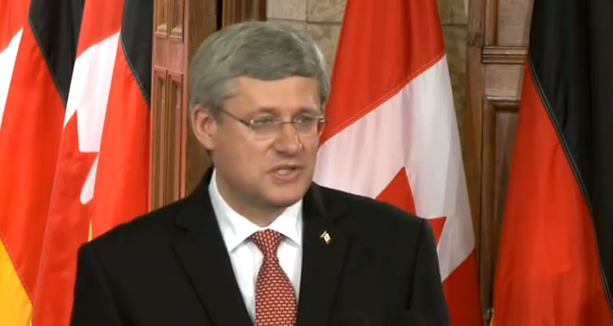“Today, we take the time to offer our sympathy and support to those who have been victims of Communism and Nazi totalitarianism, and to remember those persecuted who are no longer with us.”
I
“Canada has long been a beacon of hope for those looking to flee the heavy hand of dictatorships and oppressive regimes.”
“The marking of Black Ribbon Day in Canada shows that our Country condemns crimes against humanity, and we will forever and always be a stalwart champion for freedom, democracy and the rule of law.”
Liberal Interim Leader Bob Rae's proclamation on Black Ribbon Day:
” In 2009, Parliament passed a solemn unanimous resolution calling on all Canadians to recognize the significance of August 23 as the anniversary of the infamous agreement between the Soviet Union and Nazi Germany known as the Molotov-Ribbendrop Pact.”
“During the summer of 1939, to the astonishment of the rest of the world, these two totalitarian dictatorships united to carve up the whole of Eastern Europe. As a direct result, Hitler felt secure to attack Poland a few days later, thus starting the Second World War. The Soviets advanced on the Baltic countries.”
“But the long shadow of the Pact did not end in 1945. The USSR strengthened the grip of dictatorship, in Churchill's words, ‘from Stettin in the Baltic to Trieste in the Adriatic,' and thus the Iron Curtain enslaved hundreds of million for another half century.”
“On a personal note, I am proud to have proposed a Commons resolution. And on behalf of the Liberal Party of Canada and our Parliamentary caucus, I urge all Canadians to reflect on the importance of this day.”
Jason Kenney, Minister of Citizenship, Immigration and Multiculturalism, issued the following statement: “This evening, in communities across the country, Canadians will be taking part in comemorative ceremonies to mark the third annual Black Ribbon Day, which pays tribute to memory to the to the tens of millions of European victims of tyranny under the Communist and Nazi regimes of the last century.”
“Black Ribbon Day was declared a national day of remembrance in 2009, following the the unanimous passage of a House of Commons resolution. It marks the August 23, 1939, anniversary of the Molotov-Ribbentrop Pact. That notorious non-aggression treaty between the Communist Soviet Union and Nazi Germany was a precursor to the Second World War. It led directly to the occupation of numeration European and to the slaughter and oppression of their citizens.”
Black Ribbon Day was launched by Marcus Hess, now the President of the Estonian Central Council, in 1984,who joined with David Sommerville, President of the National Citizen's Coalition and from the first year filled Nathan Phillips Square with people until 1991 when central/east Europe became free.
The ultimate event was a demonstration all the way from Tallinn, in Estonia to Vilnius in Lithuania going through Riga, in Latvia.




